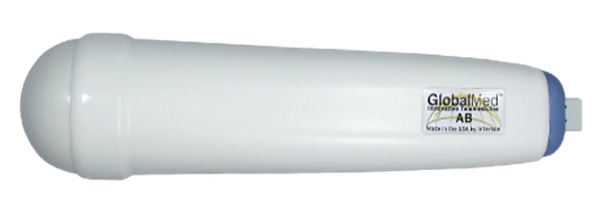
- Internet of Things Tutorial
- Internet of Things - Home
- Internet of Things - Overview
- Internet of Things - Hardware
- Internet of Things - Software
- IoT - Technology & Protocols
- Internet of Things - Common Uses
- Media, Marketing, & Advertising
- IoT - Environmental Monitoring
- IoT - Manufacturing Applications
- IoT - Energy Applications
- IoT - Healthcare Applications
- IoT - Building/Housing Applications
- IoT - Transportation Applications
- IoT - Education Applications
- IoT - Government Applications
- IoT - Law Enforcement Applications
- IoT - Consumer Applications
- IoT - Thingworx
- IoT - CISCO Virtualized Packet Zone
- IoT - Salesforce
- IoT - GE Predix
- IoT - Eclipse
- IoT - Contiki
- IoT - Security
- IoT - Identity Protection
- IoT - Liability
- Internet of Things Useful Resources
- Internet of Things - Quick Guide
- Internet of Things - Resources
- Internet of Things - Discussion
Internet of Things - Healthcare Applications
IoT systems applied to healthcare enhance existing technology, and the general practice of medicine. They expand the reach of professionals within a facility and far beyond it. They increase both the accuracy and size of medical data through diverse data collection from large sets of real-world cases. They also improve the precision of medical care delivery through more sophisticated integration of the healthcare system.
Research
Much of current medical research relies on resources lacking critical real-world information. It uses controlled environments, volunteers, and essentially leftovers for medical examination. IoT opens the door to a wealth of valuable information through real-time field data, analysis, and testing.
IoT can deliver relevant data superior to standard analytics through integrated instruments capable of performing viable research. It also integrates into actual practice to provide more key information. This aids in healthcare by providing more reliable and practical data, and better leads; which yields better solutions and discovery of previously unknown issues.
It also allows researchers to avoid risks by gathering data without manufactured scenarios and human testing.
Devices
Current devices are rapidly improving in precision, power, and availability; however, they still offer less of these qualities than an IoT system integrating the right system effectively. IoT unlocks the potential of existing technology, and leads us toward new and better medical device solutions.
IoT closes gaps between equipment and the way we deliver healthcare by creating a logical system rather than a collection of tools. It then reveals patterns and missing elements in healthcare such as obvious necessary improvements or huge flaws.

The ClearProbe portable connected ultrasound device can use any computer anywhere as a supporting machine. The device sends all imaging records to the master system.
Care
Perhaps the greatest improvement IoT brings to healthcare is in the actual practice of medicine because it empowers healthcare professionals to better use their training and knowledge to solve problems. They utilize far better data and equipment, which gives them a window into blind spots and supports more swift, precise actions. Their decision-making is no longer limited by the disconnects of current systems, and bad data.
IoT also improves their professional development because they actually exercise their talent rather than spending too much time on administrative or manual tasks. Their organizational decisions also improve because technology provides a better vantage point.
Medical Information Distribution
One of the challenges of medical care is the distribution of accurate and current information to patients. Healthcare also struggles with guidance given the complexity of following guidance. IoT devices not only improve facilities and professional practice, but also health in the daily lives of individuals.
IoT devices give direct, 24/7 access to the patient in a less intrusive way than other options. They take healthcare out of facilities and into the home, office, or social space. They empower individuals in attending to their own health, and allow providers to deliver better and more granular care to patients. This results in fewer accidents from miscommunication, improved patient satisfaction, and better preventive care.
Emergency Care
The advanced automation and analytics of IoT allows more powerful emergency support services, which typically suffer from their limited resources and disconnect with the base facility. It provides a way to analyze an emergency in a more complete way from miles away. It also gives more providers access to the patient prior to their arrival. IoT gives providers critical information for delivering essential care on arrival. It also raises the level of care available to a patient received by emergency professionals. This reduces the associated losses, and improves emergency healthcare.